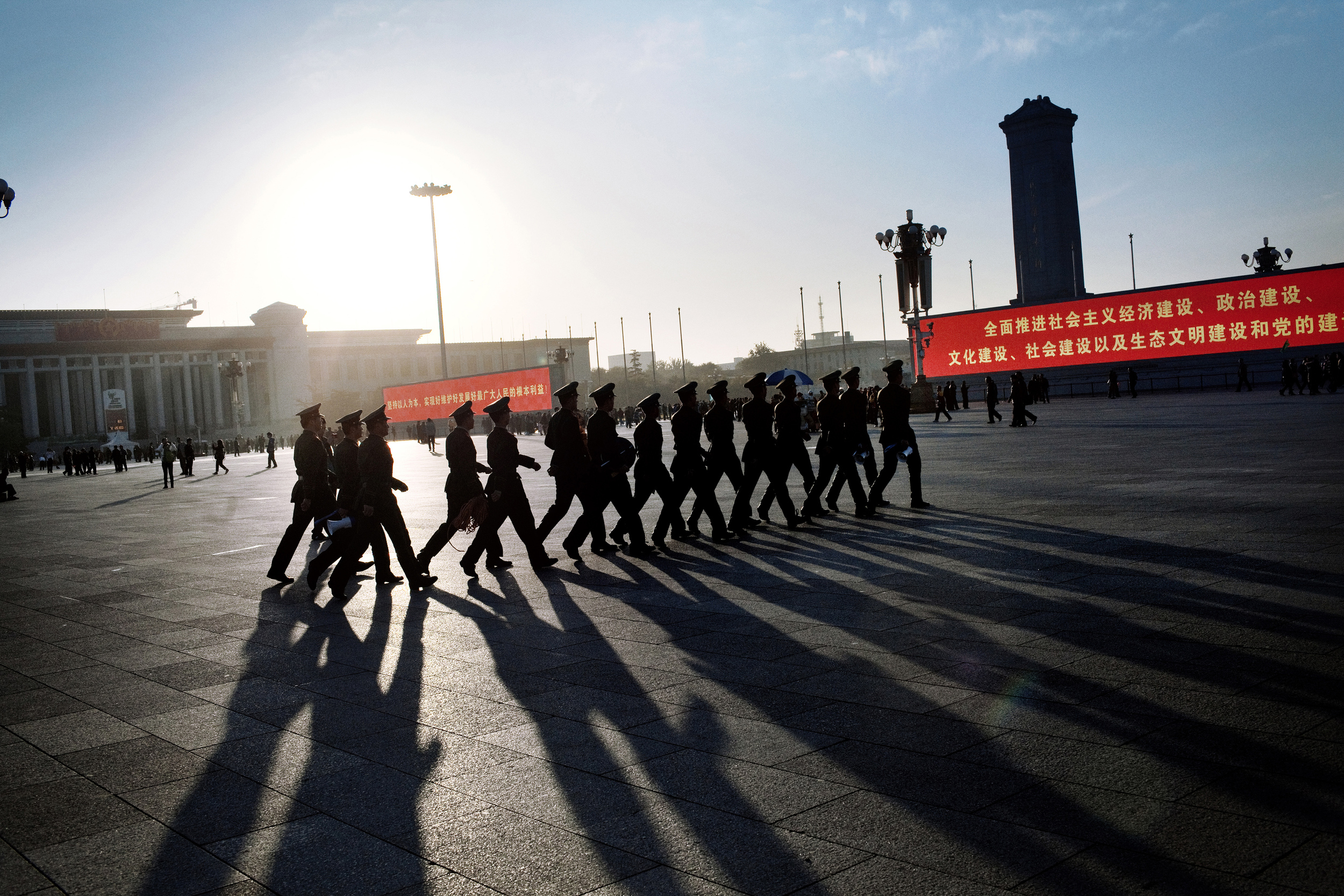
Chinese Military walk in formation across Tiananmen Sqaure just seconds after they detained scores of people. A quiet square was transformed into a military operation as plain clothes and uniformed military converged on the group. Within seconds they were whisked away in vehicles and the plain clothes military moved off back into the crowds. It was unclear what the passive group were doing to be arrested. The signs in the background read “comprehensively push the building of a socialist economy, political construction, cultural construction, social construction, ecological construction and party construction...”

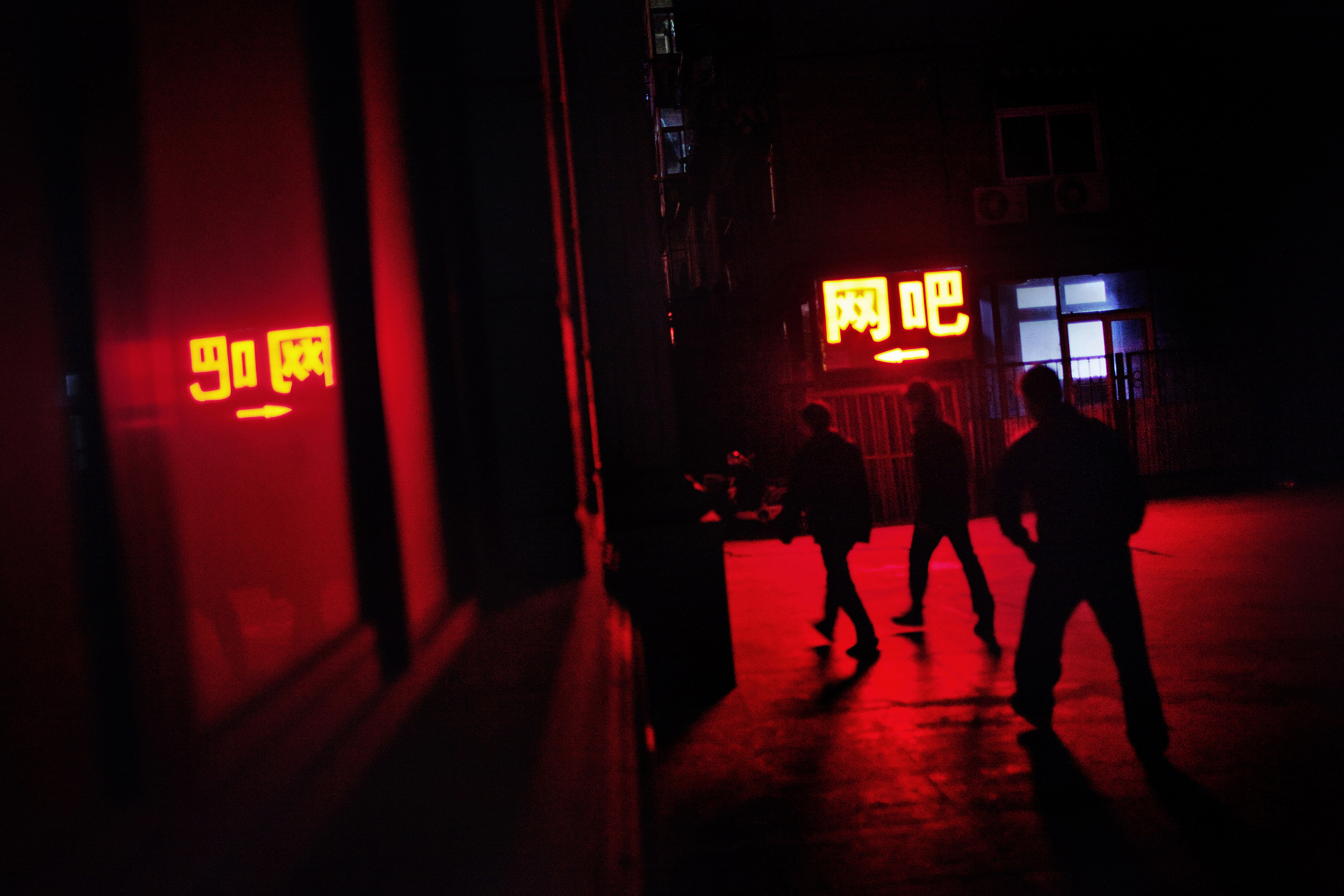
Youngsters walk into a web bar in Beijing. The Internet is a popular source of information and entertainment,
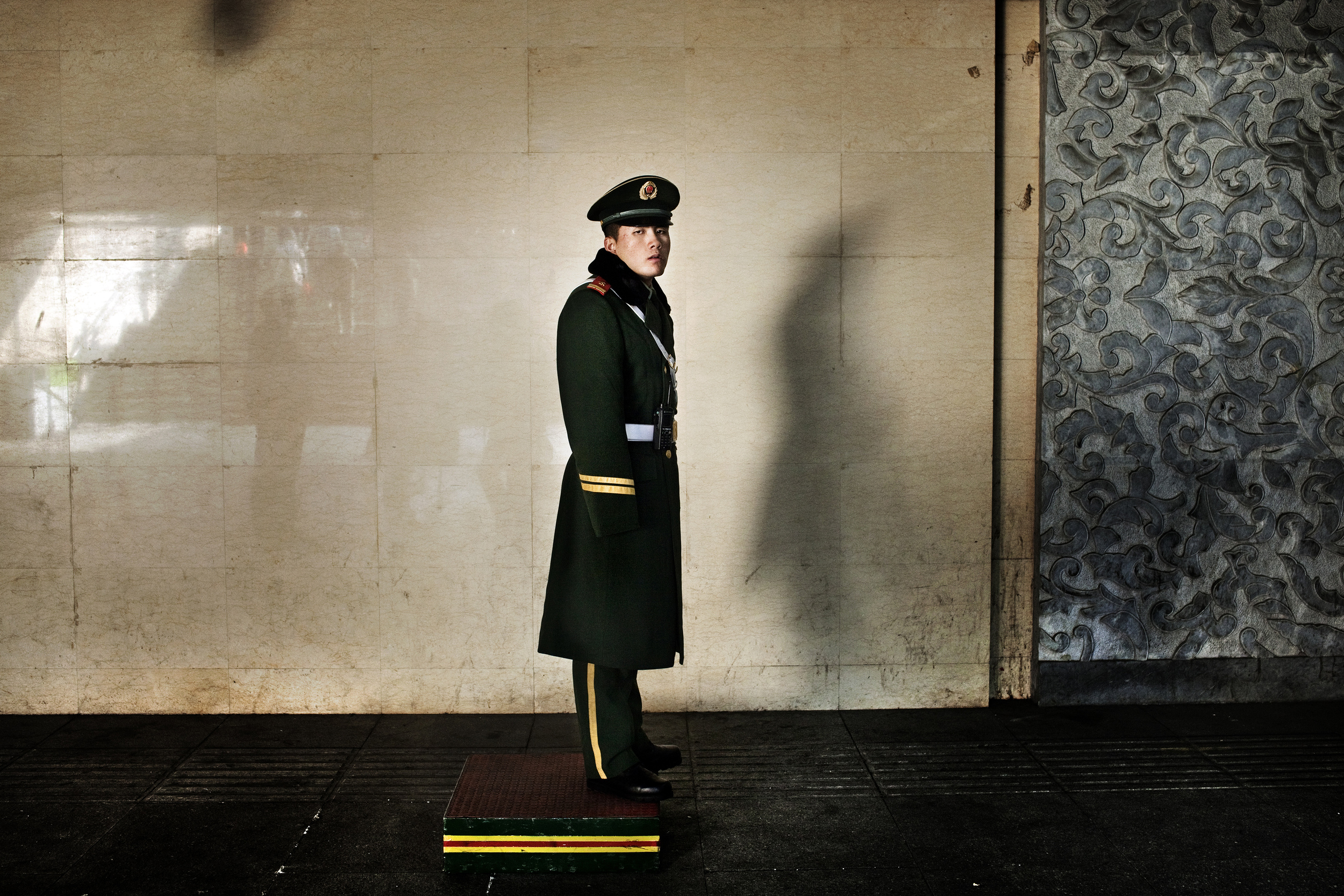
A paramilitary policeman stands guard near the underpass entrance to Tiananmen Square, the seat of power in China.
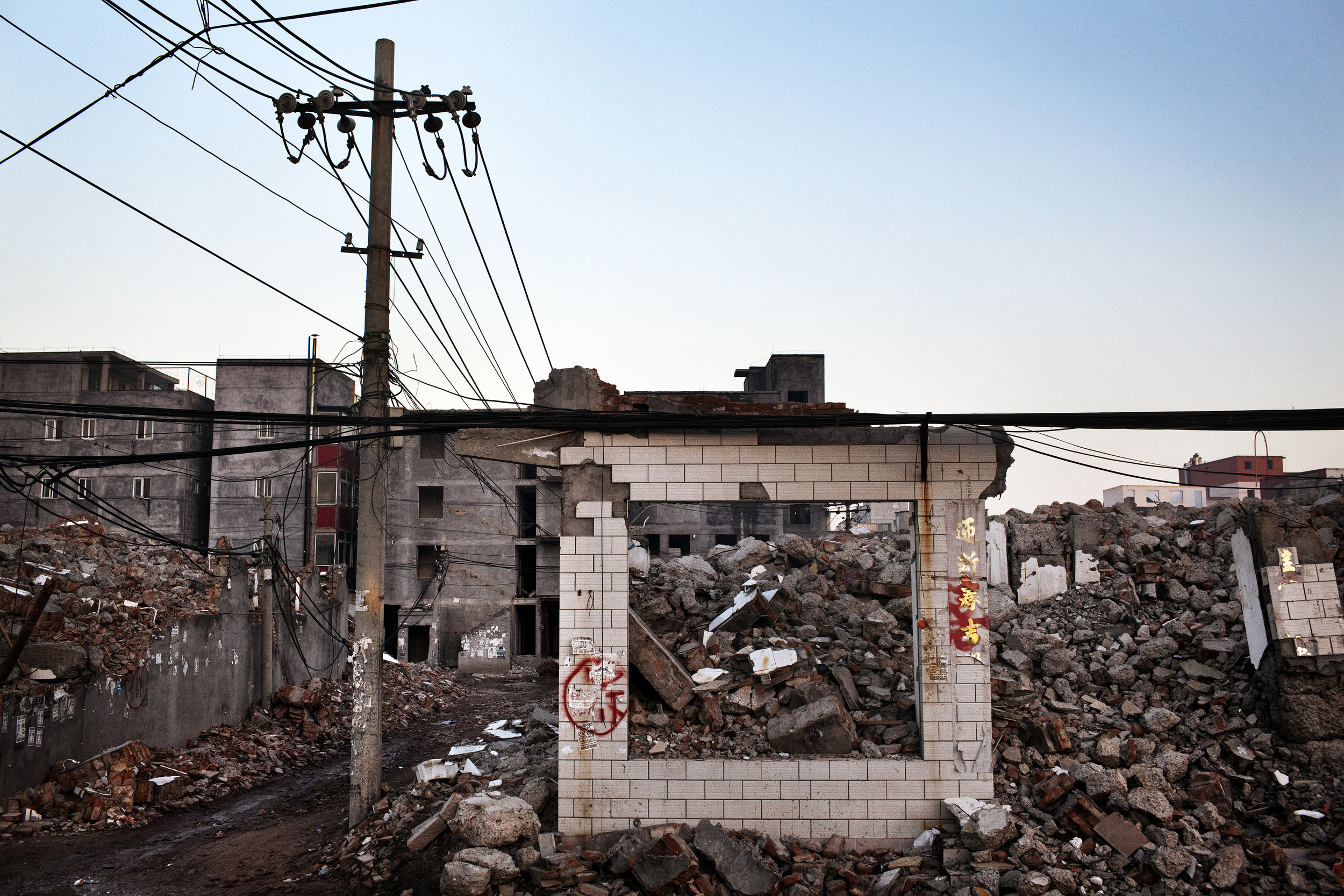
Rubble is all that remains of “ant tribe" enclave Tangjialing village on Beijing's far northwest where some 50,000 out-of-town graduates have found cheap housing in concrete blocks built by the village's 3,000 native dwellers. Many middle class white collar workers have flooded into Beijing to meet the demand for labour, but there are insufficient accommodations. Unauthorised blocks are built by unscrupulous developers and many of these white collar workers come to live in them. The government responds by regularly demolishing complete neighborhoods where these residences spring up.
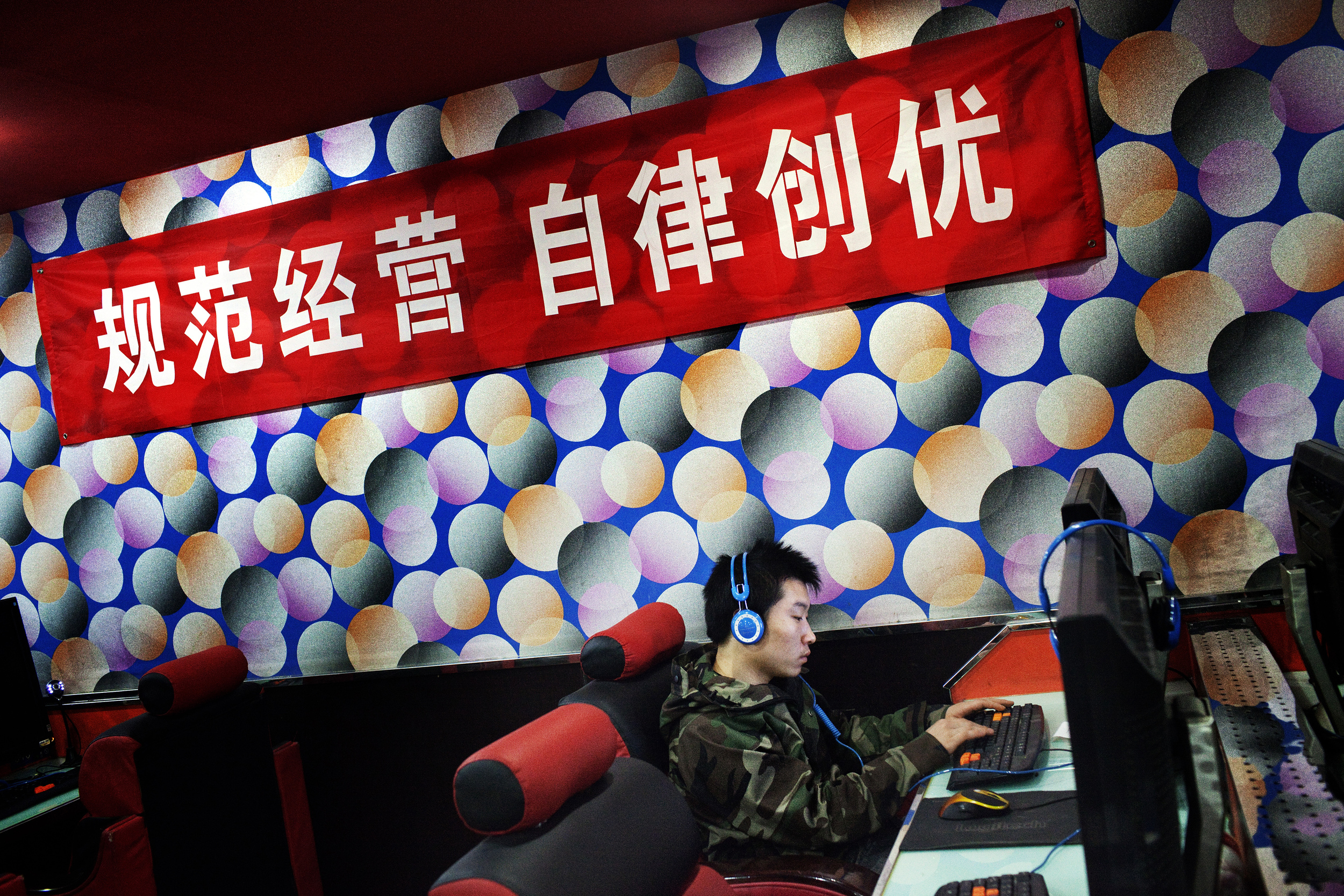
The banner advises people in the web bar in central Beijing “Conduct the business within the rules, self-regulate and strive for excellence”. In order to surf, customers must have their photograph taken and they must register with the local authorities with their ID cards.
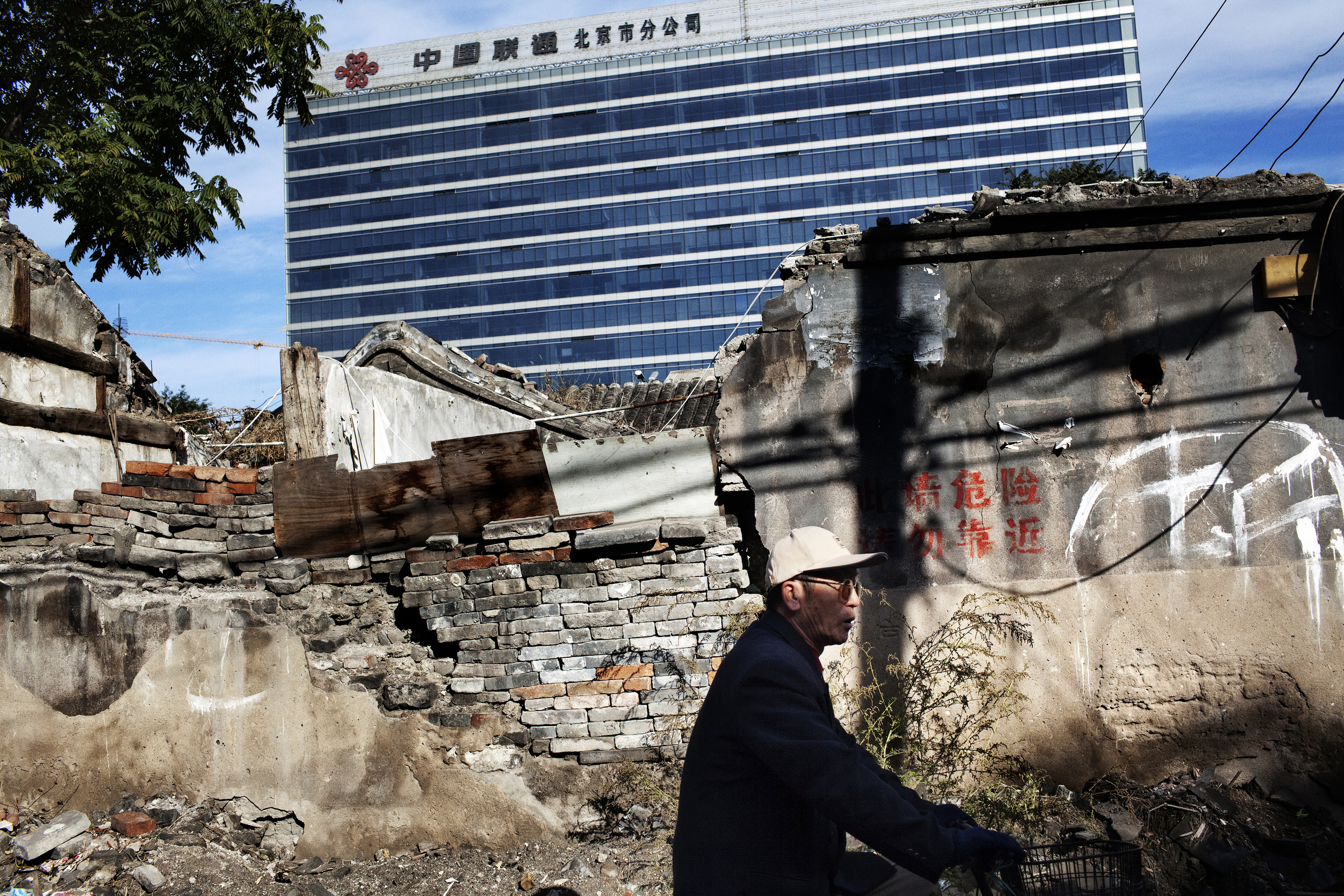
A man cycles past his old home demolished by developers, shadowed by the new China Unicom building. The wall notice reads “DEMOLISH”. “This wall is unsafe. Do not come close.”They plan to build a new residence of tower blocks. for wealthy Chinese, with the original residents consigned to housing complexes on the outskirts of town.
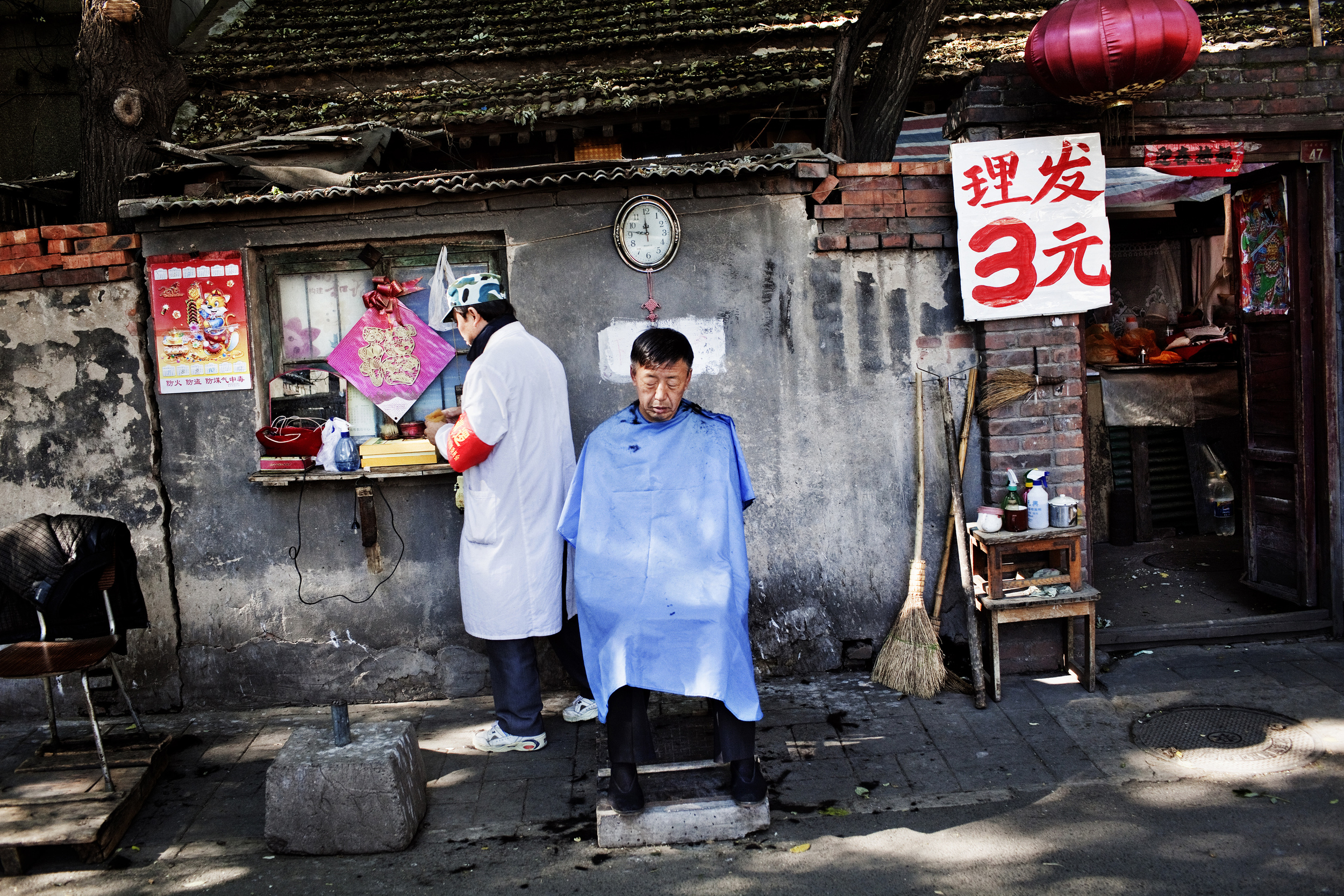
A man has his hair cut in a hutong--one of the hundreds of tree-lined alleys that make up the old city of Beijing. Just 15 years ago, Beijing had thousands of hutongs but most have been leveled to make way for giant property developments backed by wealthy entrepreneurs and Communist Party officials.
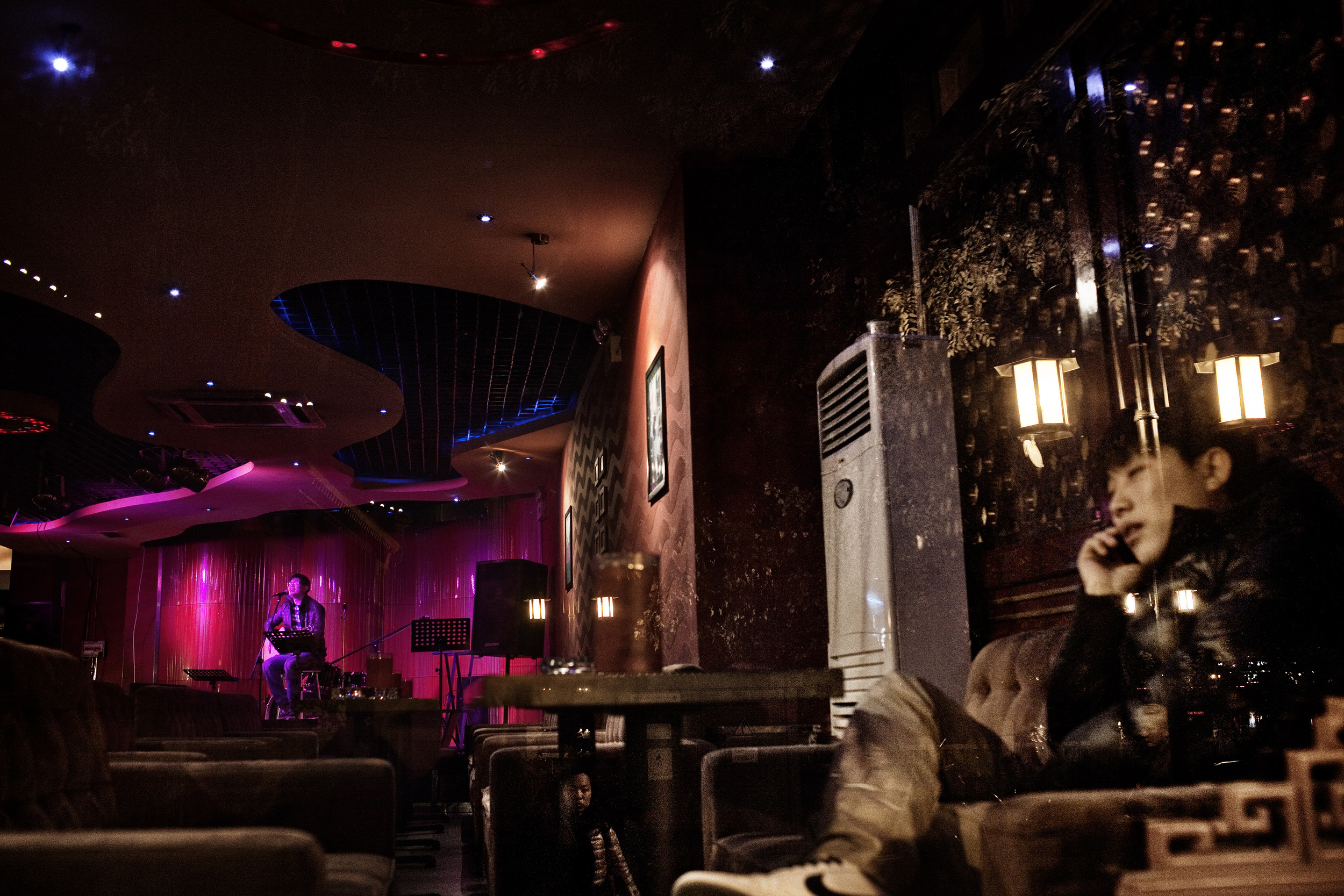
A customer sits in a bar on his mobile phone at Houhai, where nightspots and restaurants snake around lakes. Entertainment and tourism has created a boom in the bar and restaurant culture in China.
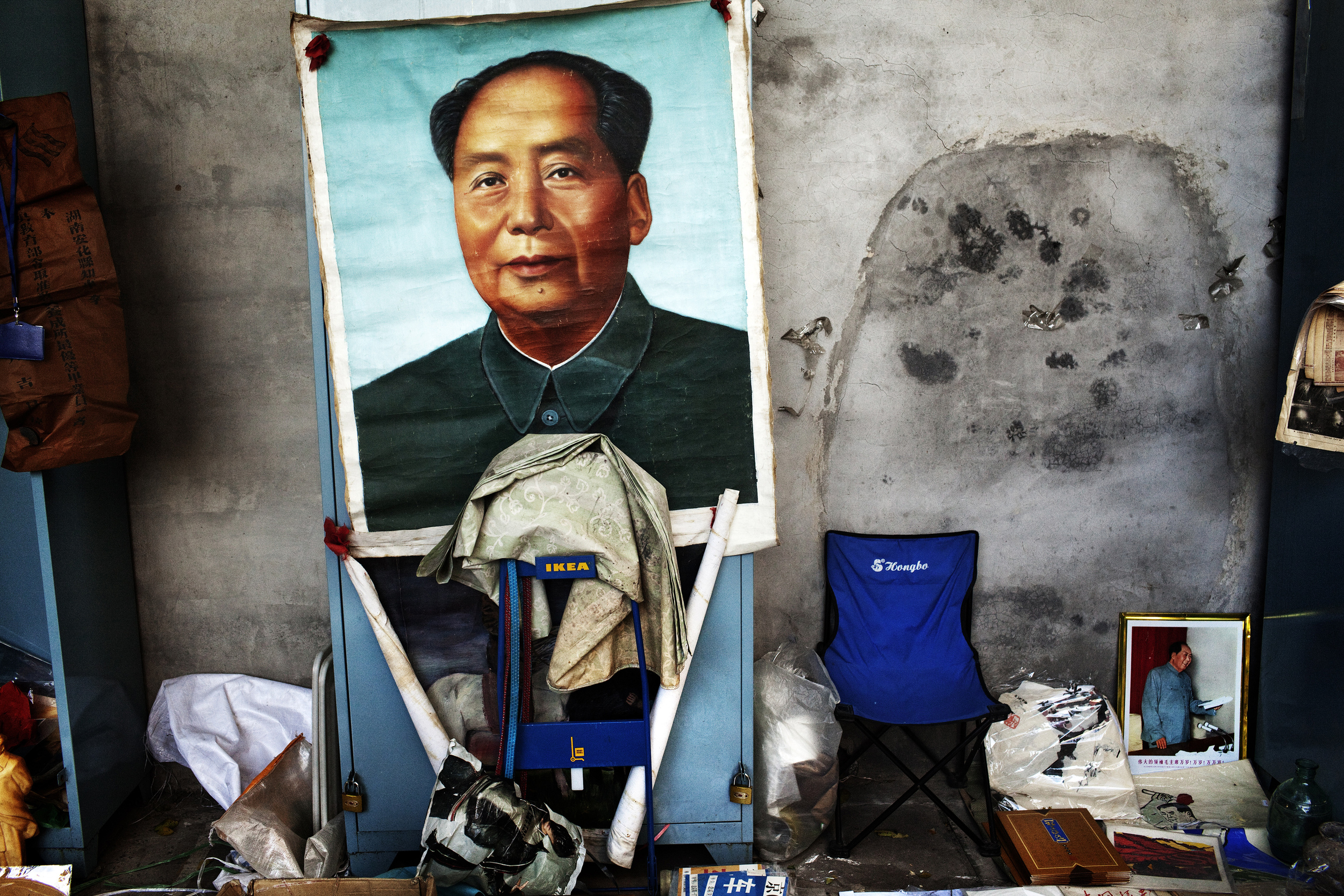
A poster of Mao in Panjiayuan antiques and flea market, south Beijing. Although Mao's communist economic system has been supplanted by a free-wheeling market economy, the party that he helped bring to power still exercises uncontrolled power over the country.
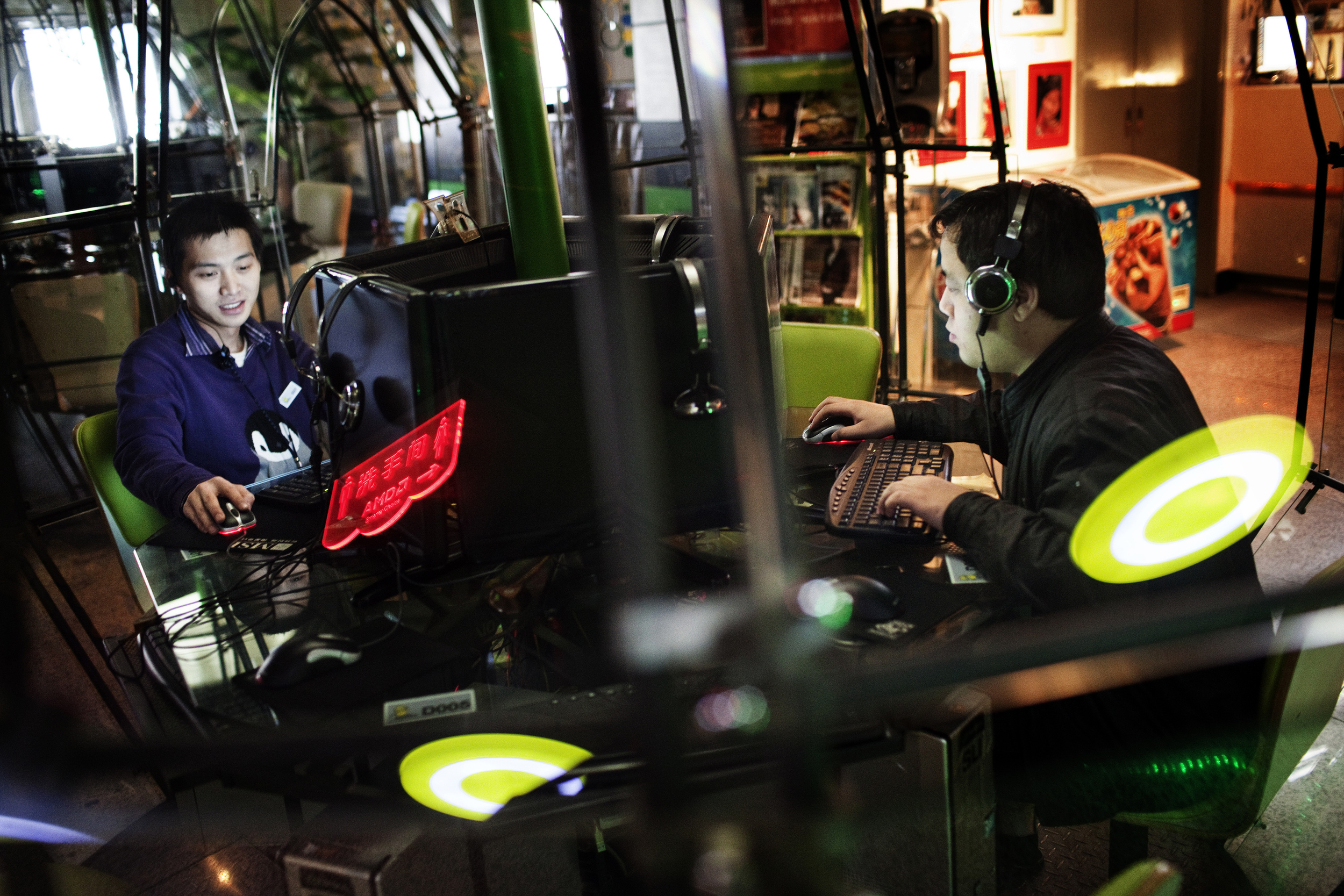
Young men surf the web in an Internet cafe in Beijing. The internet is creating a huge need for information in China. Many play online games and spend hours if not days at the computer. Addiction is an increasing problem amongst the young.
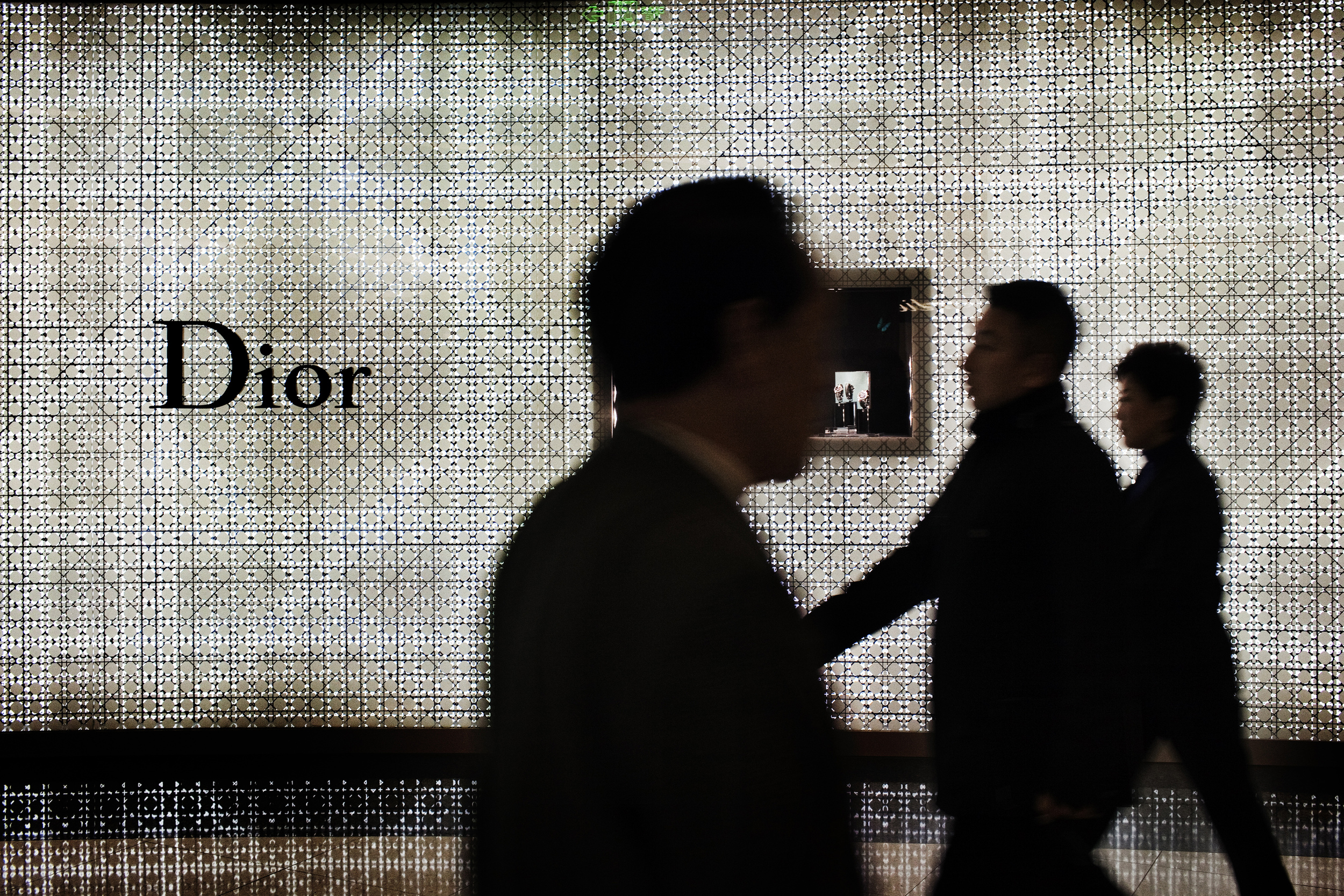
Shoppers walk past a Dior shop in the centre of Beijing. China has become one of the world's largest markets for luxury goods, even while hundreds of millions live in absolute poverty, giving rise to one of the largest wealth discrepencies in the world.
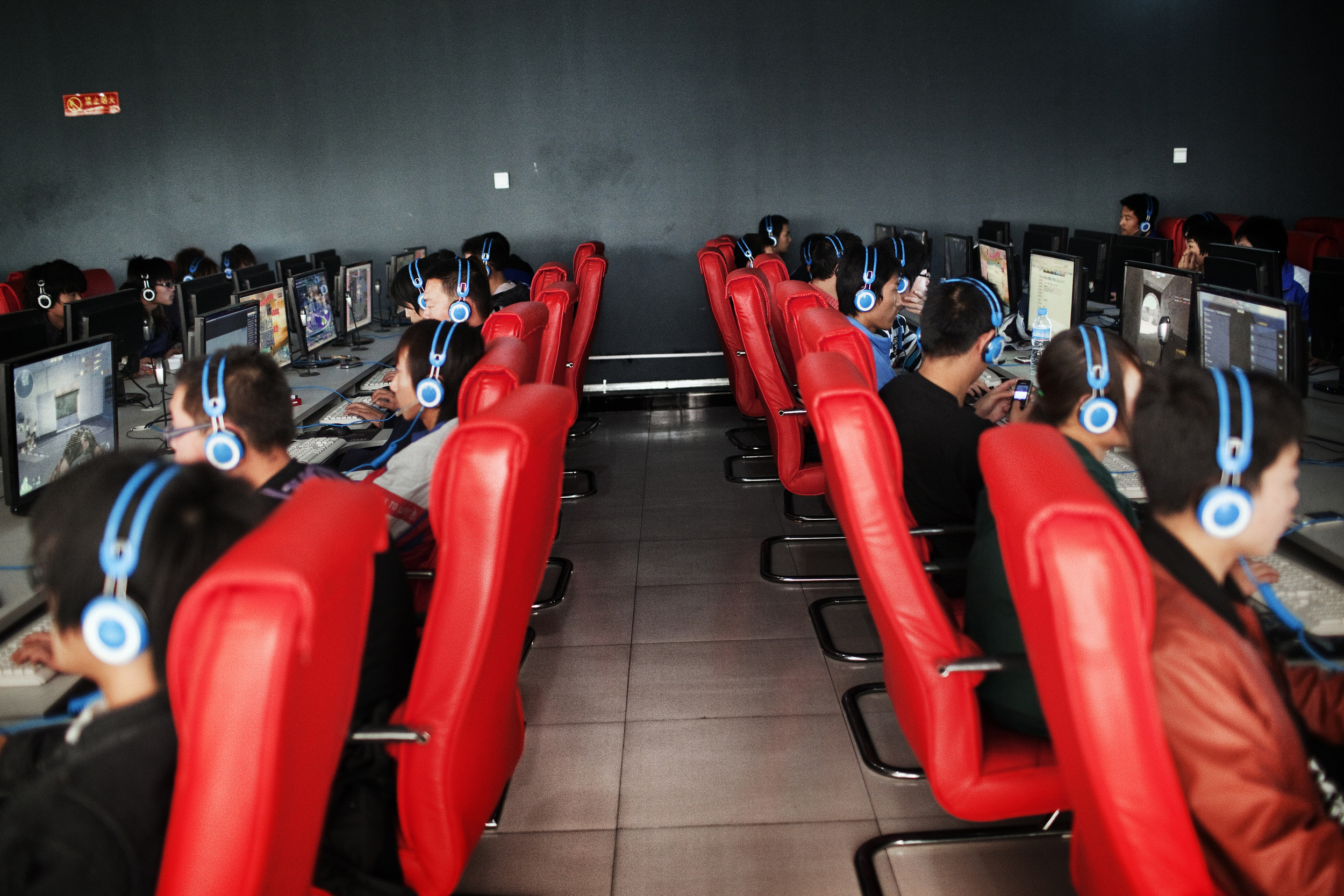
Young people surf the internet together in an internet bar in a surburb of Baoding, Hebei province. Internet is creating a huge need for information in China. Although the Internet is a force for change in China, it is also used effectively by the government to monitor social concerns. As in many countries, much use is also taken up with online gaming and other forms of entertainment.

Young musicians ready themselves for a night entertaining in a bar in Houhai, a popular nightspot around the lakes in central Beijing
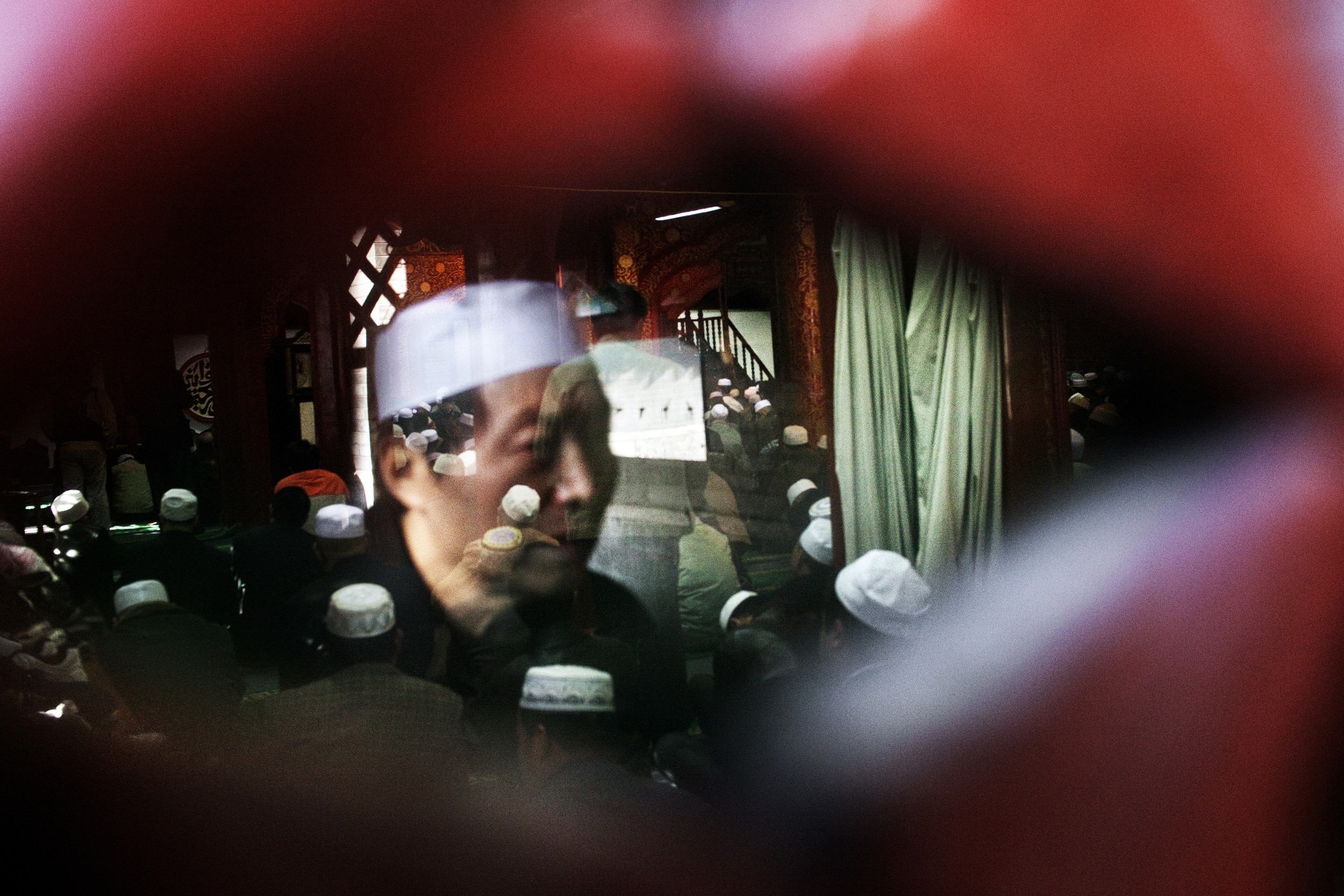
Local Muslims pray at Friday prayers at Niujiu Mosque or Ox Street Mosque, Beijing’s largest. China has 56 ethnic groups, many in its border regions. In recent years these have suffered from riots against perceived discrimination by the ethnic Chinese, or "Han," majority.
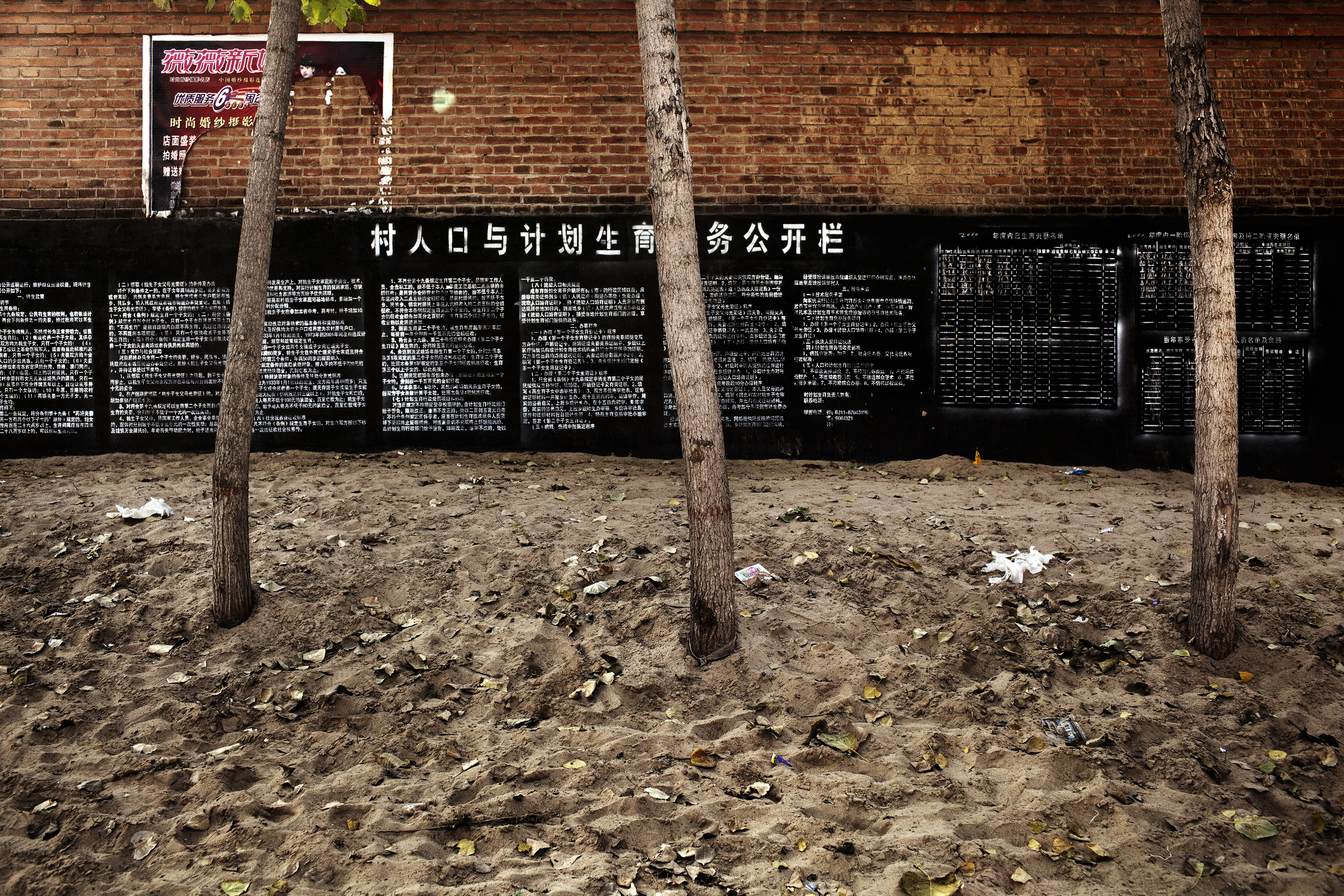
The rules and regulations outlining the single child policy are written on a wall in Dong Ci village, near Zhuozhou town in Hebei province. It outlines the names of the families who have given birth and kept or broken the rules. Chinese families are generally limited to one child per family to limit population growth. There are some people who decide to have more than one child and they are subject to a fine of several months wages.
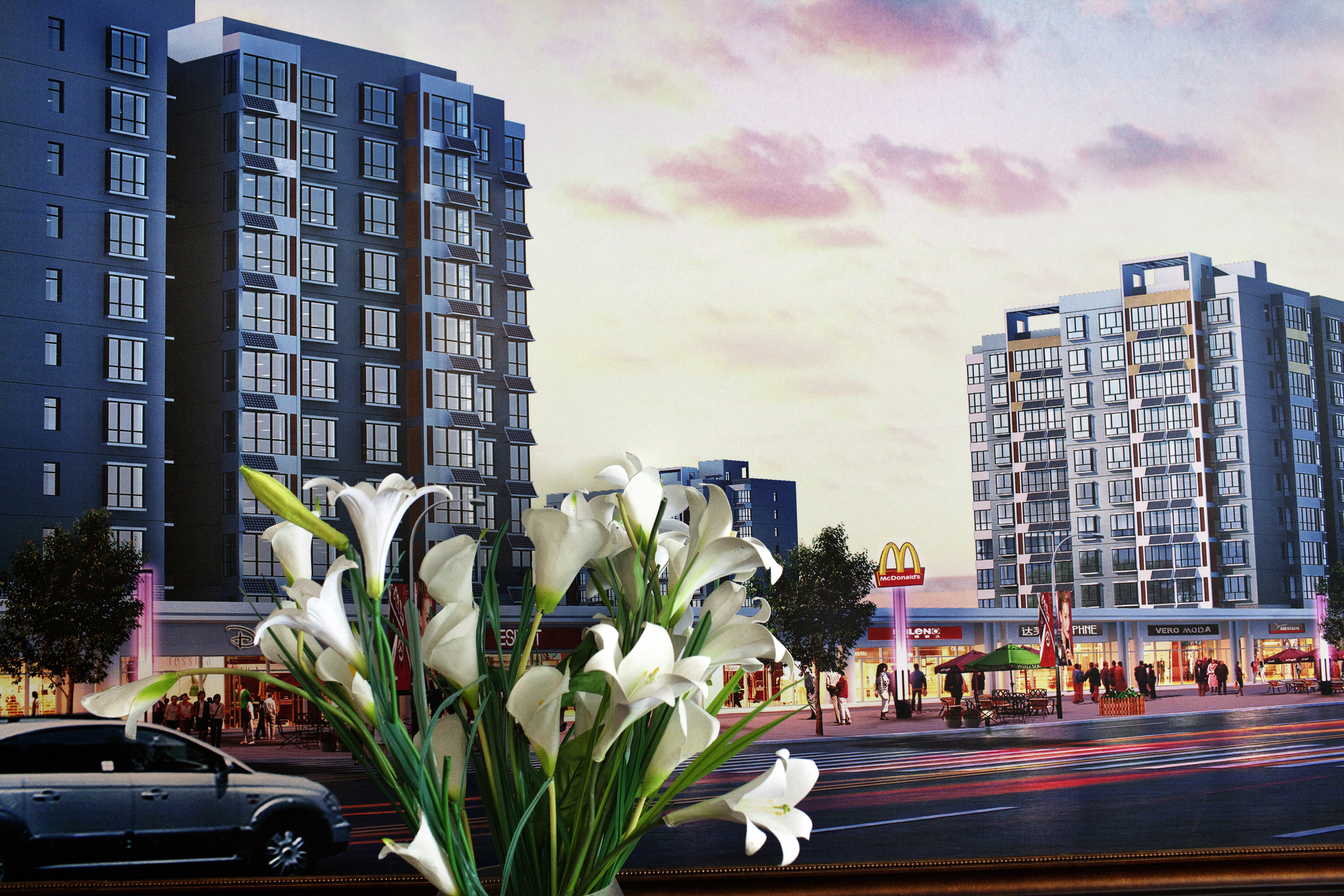
A picture of a future development is advertised in the offices of a development company in Zhuozhou town, Hebei province. Increasing wealth has led to huge developments in the areas surrounding Beijing.
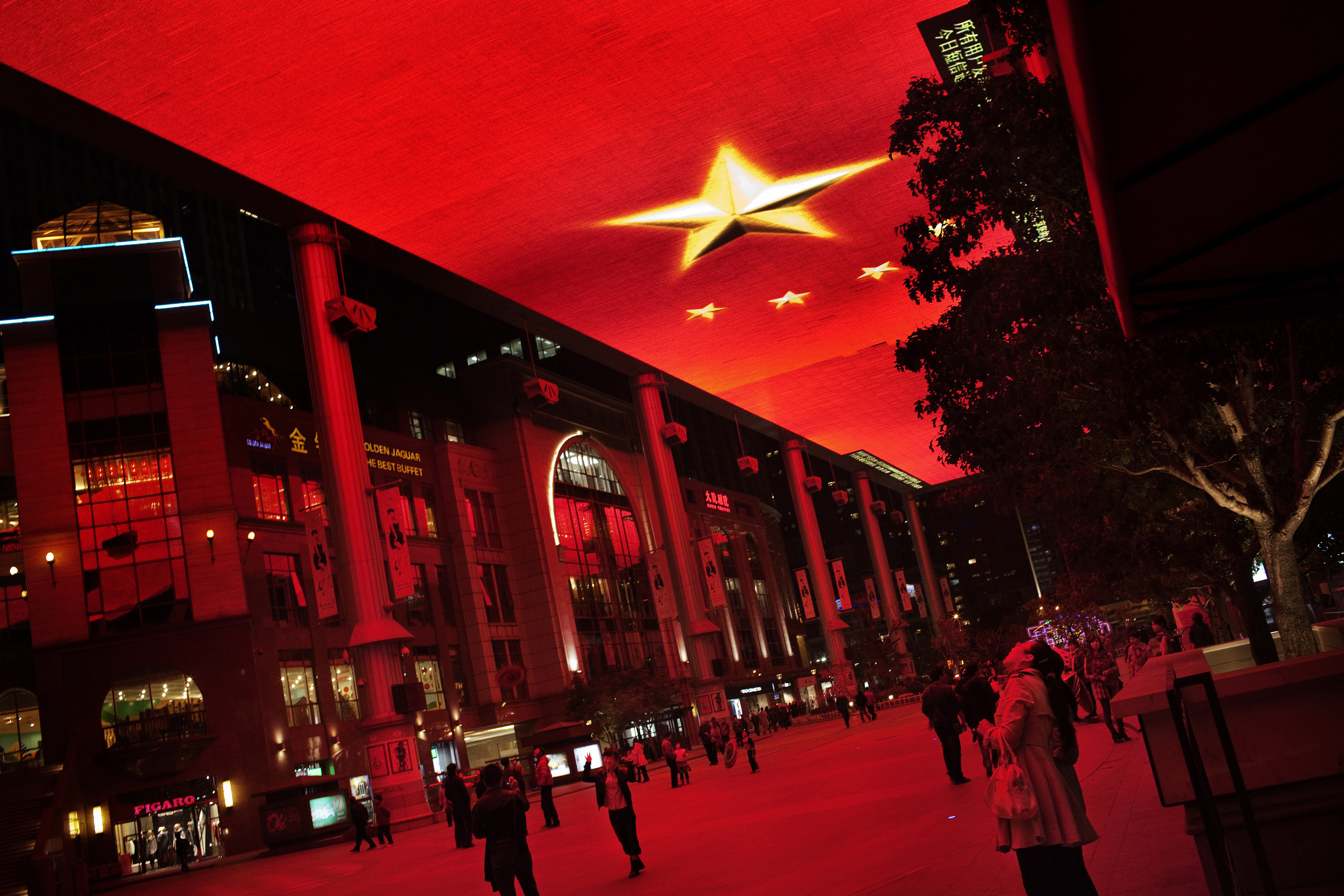
Red star over China, a projection of the national flag on an enormous screen which runs across the top of a walkway at The Place, a mega shopping mall in Beijing’s central business district. It’s said to be the largest LED screen in Asia. The area is home to shops for high class designers and provides a great backdrop for Beijing citizens to walk and play in the evening.

















